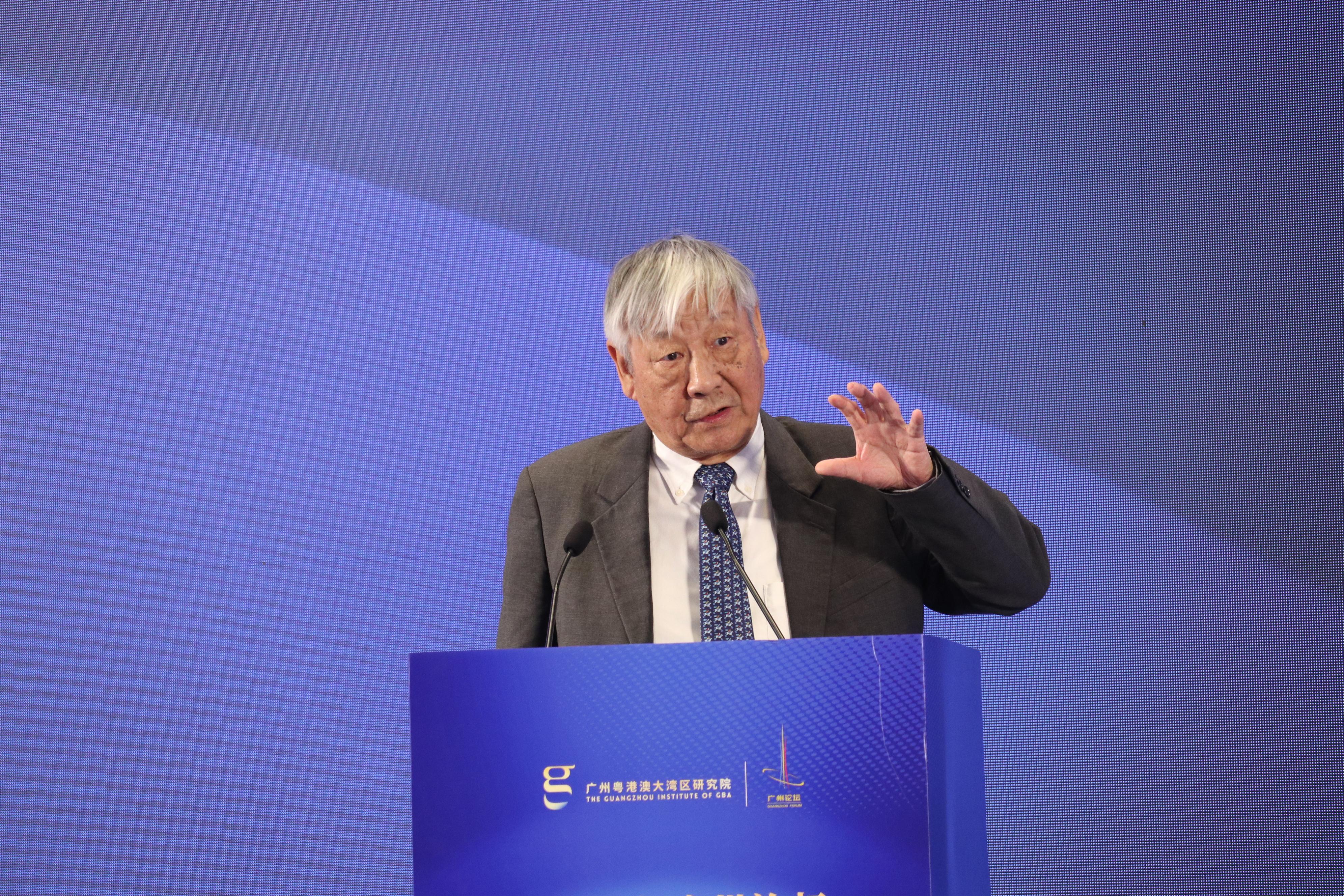
What are the comparative advantages of the Guangdong-Hong Kong-Macao Greater Bay Area (GBA) in its future development? Where might its next major growth driver emerge? Economist Cao Yuanzheng, a member of the Chinese Economists 50 Forum, former vice president of the China Society of Macroeconomics, and former chief economist of the Bank of China, shared his thoughts in an interview with Yangcheng Evening News.
Cao highlighted the GBA's unique position on the global stage. It's not only the world's most populous bay area and a hub of manufacturing but also an integrated economy that bridges two very different systems—the Chinese mainland and Hong Kong and Macao SAR. This divide extends beyond economic policies to legal frameworks, giving the GBA its distinctive character.
"Hong Kong plays a vital role for China, partly because it's the only region under common law, a legal system widely used in international business," Cao said. He sees integration as the GBA's greatest strength. Through integration, the GBA has the potential to unlock world-class capabilities, making it a standout worldwide.
"I believe Guangdong should value this foundation for innovation," Cao said. "If the GBA can leverage the complementary advantages of its market economies, institutional innovation will drive further technological and product innovation."
"Integrating existing technologies can lead to super-scale effects, producing outcomes where the whole exceeds the sum of its parts. Why has China's new energy vehicle sector thrived, exemplified by BYD's factories? It's a manifestation of innovation arising from this synergy."
"What is the logic behind this innovation? It is the result of market economy mechanisms," he analyzed. In a market economy, businesses seek out the most cost-effective paths to leverage their comparative advantages, naturally forming partnerships. These collaborations, based on market economy, lead to production and business activities guided by demand."
"The GBA is bursting with opportunities for innovation. If you can imagine it, it can be realized. This is the opportunity for innovation." For Guangdong, Cao believes the key is to consolidate and expand this foundation for innovation to ensure the emergence of new breakthroughs.
"From the perspective of China's future development, we believe the next major opportunity for the GBA is already on the horizon," Cao said. In his view, the next big driver will be the service sector. On one hand, this includes producer services. "The resilience of the GBA's large-scale development in the past owes much to producer services. The proportion of services within the GBA's industries has been growing, and the integration of services with production is a characteristic of the region." On the other hand, it also includes life services, such as education, healthcare, and eldercare. "This goes beyond just restaurants and hotels; it encompasses high-end services like medical care and education," Cao explained, noting that this is one of the reasons why many cities in the GBA have been establishing universities in recent years.

Source: Lingnan On the Cloud
大湾区下一个风口在哪?专访中国经济50人论坛成员曹远征
粤港澳大湾区未来发展的比较优势在哪里?下一个“风口”又在哪儿?近日,“中国经济50人论坛”成员、中国宏观经济学会前副会长、中国银行原首席经济学家曹远征接受了羊城晚报记者专访,对上述问题作了解答。
曹远征认为,粤港澳大湾区是世界上一个比较特别的湾区,它的特殊性表现在:它是全球人口最多的湾区,也是作为全球制造业中心的湾区,但它的本质特点在于,它至少是由两个完全不同的体制——内地与港澳联合的经济体,这不仅体现在经济体制不同,也体现在法律制度不同。
“香港对中国很重要,原因之一在于香港是中国唯一一个适用普通法的地区,而普通法是全球商事活动中通行的法律安排。”在他看来,粤港澳大湾区最重要的是融合,大湾区的相互融合可以产生全新的具有世界意义的效能,这是大湾区的独特优势。
“我觉得广东要特别珍惜这种创新的基础,如果粤港澳之间能实现市场经济优势互补,那么制度创新会带来更多的技术创新和产品创新。”曹远征说。
“把现成的技术集成,集成以后就会出现超大规模,出现复杂经济学中的整体大于局部之和现象。为什么中国的新能源车会在比亚迪的工厂出现?其实就是整体大于局部之和的创新。”他说。
“这个创新背后有什么逻辑?这是市场经济作用的结果。”他分析说,市场主体在市场经济中要发挥比较优势,就会寻找成本最低的路线,就会与其他市场主体形成协作关系,这种协作关系由于是在市场经济基础之上,所以它会出现以需求引导生产经营的活动。
“在大湾区,能发现很多这样的创新。只有想不到的没有做不到的,只要你能想出来,它就能给你实现,这是创新的机遇。”在曹远征看来,对广东来说,最重要的是在创新的基础上,巩固和发展这种创新的基础,那么就一定会有新的创新出现。
“如果从中国未来发展看,我们认为大湾区的下一个‘风口’正在到来。”在曹远征看来,下一个“风口”是服务业。一方面是生产性服务业,“过去大湾区的规模性为什么有弹性?是生产性服务业,大湾区产业中服务所占的比重越来越高,服务和生产不分家,这是大湾区产业的一个特点。”另一方面是包括教育、医疗、养老等各种生活性服务在内的生活性服务业,“它不仅仅是指饭馆、旅馆,还指高端服务业——医疗、教育”。他认为这是大湾区不少城市近年来陆续开办大学的原因。
文、图 | 记者 董柳
翻译丨邹晓华
审校丨赵凡
-
Poster丨Promoting city tourism through the 2024 Dongguan Marathon
2024-12-12 20:49:11 -
The Huangmaohai Cross-Sea Passage opens to traffic today
2024-12-11 21:59:41 -
Spring Festival holiday travel routes booking opens
2024-12-11 21:59:49 -
First glaucoma surgery in Maldives is performed by Guangdong doctors
2024-12-11 21:59:59






